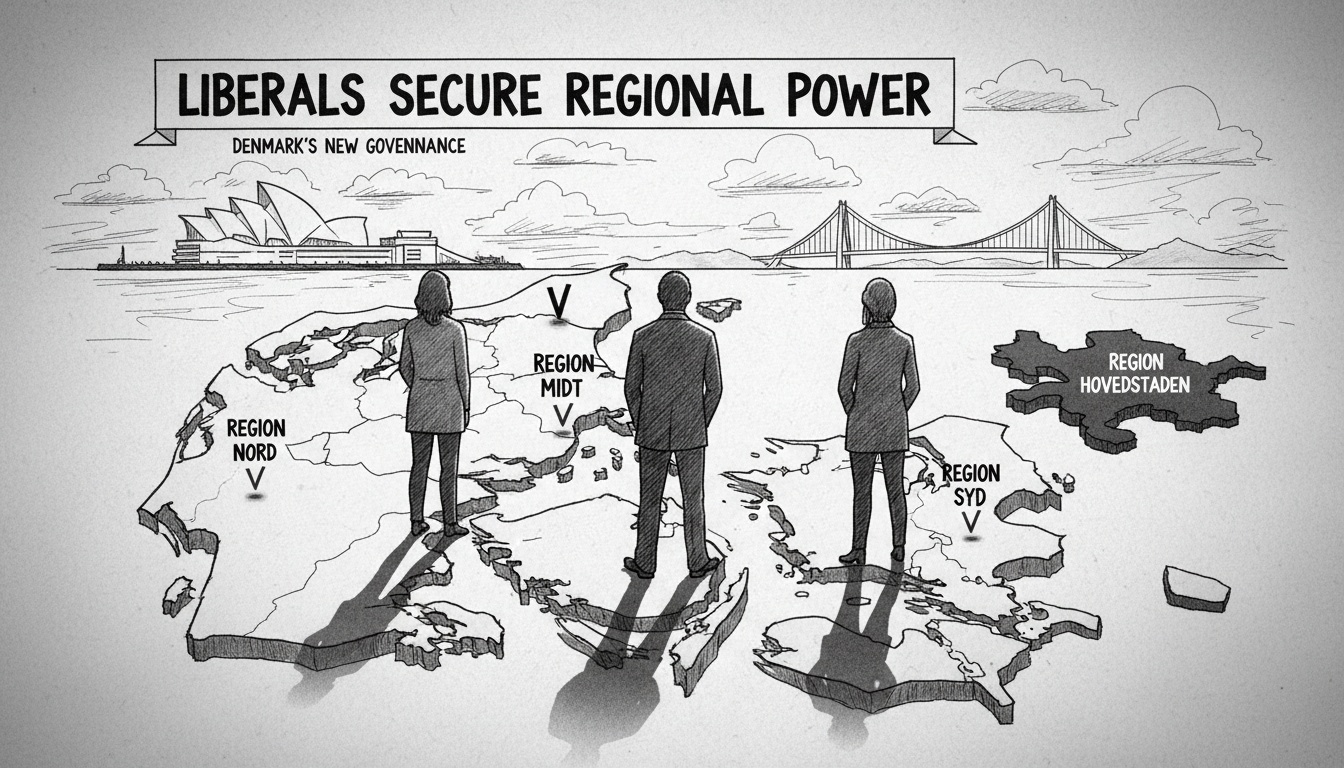Danish voters reshaped their regional governance in Tuesday's election. The country consolidated five regions into four larger administrative units. The center-right Liberal Party emerged as the dominant political force. They now claim the chairmanship in three of the four newly formed regional councils.
This consolidation represents the most significant restructuring of Danish regional government in over a decade. The merger aims to streamline healthcare administration and reduce bureaucratic overhead. Regional councils in Denmark manage critical public services, particularly hospital systems and regional development. Their leadership decisions directly impact healthcare access for Denmark's 5.8 million residents.
The election results signal a rightward shift in Danish regional politics. The Liberal Party's strong performance suggests voters prioritize economic efficiency in public services. These councils control substantial budgets for healthcare infrastructure and regional transportation. Their decisions will influence hospital staffing, specialized treatment access, and public health initiatives across Denmark.
Regional elections typically draw lower turnout than national parliamentary votes. This makes organizational strength crucial for political parties. The Liberals' success demonstrates their effective grassroots mobilization. They outperformed competing parties in convincing their supporters to participate in these administrative elections.
What does this mean for Denmark's healthcare system? The Liberal Party generally advocates for private sector involvement in public services. Their new dominance in regional councils could lead to increased outsourcing of non-medical hospital functions. Some analysts predict more public-private partnerships in healthcare infrastructure projects.
The Social Democrats, Denmark's governing party nationally, secured only one regional chairmanship. This creates potential friction between national health policy and regional implementation. The political divide might complicate healthcare reforms proposed by the national government.
These election results reflect broader European trends toward regional consolidation. Many countries seek administrative efficiency through merging local government units. Denmark's experiment will be closely watched by policymakers in Sweden, Germany, and the Netherlands. The success or failure of this structural reform could influence similar initiatives throughout Scandinavia.
Regional council elections often serve as political barometers between national elections. The Liberal Party's strong showing positions them favorably for upcoming municipal and parliamentary contests. Their demonstrated organizational strength suggests they remain a formidable political force despite recent challenges in national politics.

